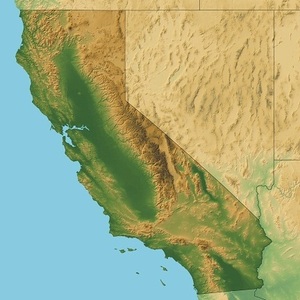California agency proposes to update refinery regs for renewables

September 27, 2021
BY Erin Krueger
In California, the Bay Area Air Quality Management District has proposed amendments to its existing refinery rules to ensure that facilities that produce fuels and other products from non-petroleum feedstocks remain subject to, and in compliance with, the same emission standards and rule requirements that were in effect when the feedstock was petroleum based.
A staff report released by the agency explains that since 2020, two of the five petroleum refineries in the Bay Area have submitted permit applications to modify the facility operation to process alternative feedstocks with the intent of producing renewable products.
Advertisement
Advertisement
“Petroleum refineries are subject to a variety of Air District rules and regulations,” said the agency in the staff report. “Some of these rules are exclusively applicable to petroleum refineries and some of these rules are applicable to petroleum refineries as well as other facilities. Most of these rules determine that applicability by using the definition of petroleum refinery. There are also instances where a particular standard, requirement, or exemption is dependent on terms such as ‘fossil-derived,’ ‘fossil-fuel,’ petroleum,’ and ‘crude oil.’
“The purpose of the proposed amendments is to ensure that the facilities that produce fuels and other products from non-petroleum feedstocks remain subject to and in compliance with the same emission standards and rule requirements that were in effect when the feedstock was petroleum based.”
Without the proposed changes, the agency said the facilities that change to non-petroleum feedstocks may no longer be subject to the emission standards and other regulatory requirements that currently apply to them. Adoption of the proposed amendments aims to maintain the status quo and ensure that the petroleum facilities that convert to non-petroleum operations will continue to be required to comply with the same emission standards and regulatory requirements that are currently applicable to their operations.
Advertisement
Advertisement
Written comments on the proposed amendments can be submitted through Oct. 11. A public hearing is currently scheduled for Nov. 3. Additional information is available on the Bay Area Air Quality Management District website.
Related Stories
Bangkok Airways Public Company Limited has officially announced the adoption of sustainable aviation fuel (SAF) on its commercial flights, reinforcing Thailand’s green aviation industry. The initiative took effect starting July 1, 2025.
Avalon Energy Group LLC and Sulzer Chemtech have signed a strategic alliance and partnership agreement to scale up the production of SAF. Under the agreement, Avalon has selected BioFlux technology for its portfolio of SAF projects.
The USDA has announced it will delay opening the first quarterly grant application window for FY 2026 REAP funding. The agency cited both an application backlog and the need to disincentivize solar projects as reasons for the delay.
Neste and DHL Express have strengthened their collaboration with the supply of 7,400 tons (9.5 million liters) of neat, i.e. unblended, Neste MY Sustainable Aviation Fuel to DHL Express at Singapore Changi Airport starting July 2025.
CoBank’s latest quarterly research report, released July 10, highlights current uncertainty around the implementation of three biofuel policies, RFS RVOs, small refinery exemptions (SREs) and the 45Z clean fuels production tax credit.
Upcoming Events










